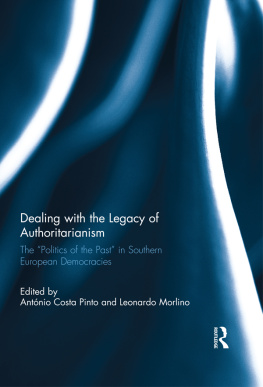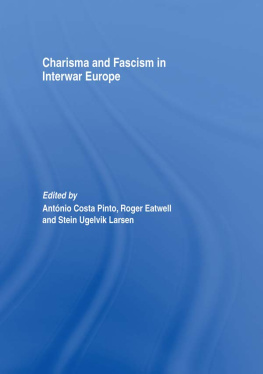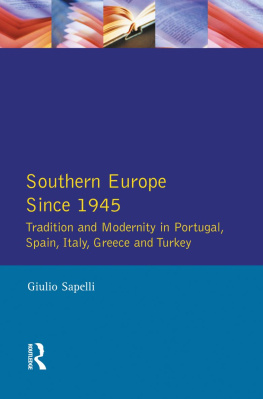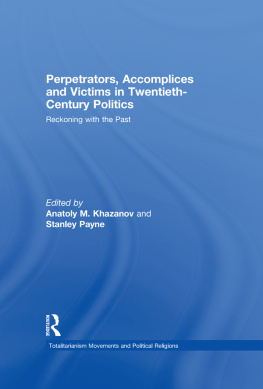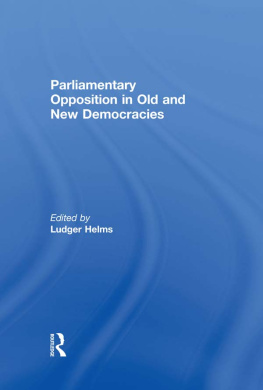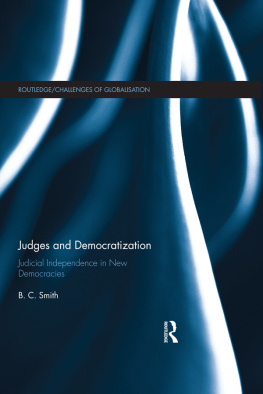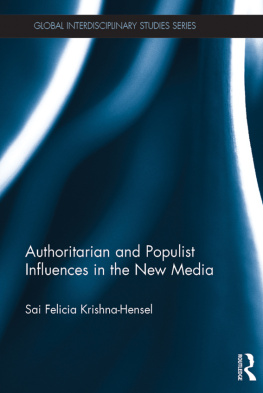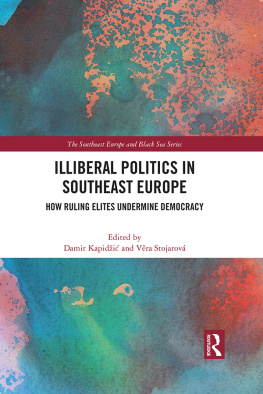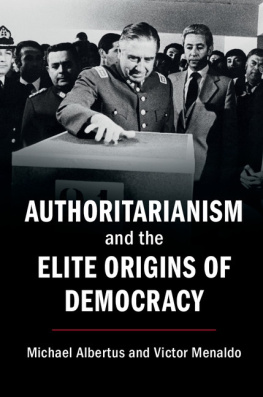Dealing with the Legacy of Authoritarianism
In recent years the agenda of how to deal with the past has become a central dimension of the quality of contemporary democracies. Many years after the process of authoritarian breakdown, consolidated democracies revisit the past either symbolically or to punish the elites associated with the previous authoritarian regimes. New factors, like international environment, conditionality, party cleavages, memory cycles and commemorations or politics of apologies, do sometimes bring the past back into the political arena.
This book addresses such themes by dealing with two dimensions of authoritarian legacies in Southern European democracies: repressive institutions and human rights abuses. The thrust of this book is that we should view transitional justice as part of a broader politics of the past: an ongoing process in which elites and society under democratic rule revise the meaning of the past in terms of what they hope to achieve in the present.
This book was published as a special issue of South European Society and Politics.
Antnio Costa Pinto is a Professor of Politics and Contemporary European History at the Institute of Social Sciences, University of Lisbon. He is presently the President of the Portuguese Political Science Association. He has published extensively on fascism, authoritarianism, democratisation and transitional justice in Southern Europe.
Leonardo Morlino is a Professor of Political Science at Istituto Italiano di Scienze Umane (Florence, Italy) and President of the International Political Science Association in 200912. His main contributions are on change of regimes, consolidation of democracy, qualities of democracies with a special attention to Southern and Eastern Europe and Latin America.
This is an especially valuable contribution to our thinking on how elites and institutions reflect, reconstruct and reconcile authoritarian pasts in new democracies. From its introduction to its conclusion, the collection teaches us important lessons that extend beyond Southern Europe and even beyond comparative politics.
Nancy Bermeo, Nuffield Professor of Comparative Politics, Nuffield College, University of Oxford
Dealing with the Legacy of Authoritarianism
The Politics of the Past in Southern European Democracies
Edited by
Antnio Costa Pinto and Leonardo Morlino
First published 2011
by Routledge
2 Park Square, Milton Park, Abingdon, Oxon, OX14 4RN
Simultaneously published in the USA and Canada
by Routledge
711 Third Avenue, New York, NY 10016
Routledge is an imprint of the Taylor & Francis Group, an informa business
2011 Taylor & Francis
This book is a reproduction of South European Society and Politics, vol. 15, issue 4. The Publisher requests to those authors who may be citing this book to state, also, the bibliographical details of the special issue on which the book was based.
All rights reserved. No part of this book may be reprinted or reproduced or utilised in any form or by any electronic, mechanical, or other means, now known or hereafter invented, including photocopying and recording, or in any information storage or retrieval system, without permission in writing from the publishers.
Trademark notice: Product or corporate names may be trademarks or registered trademarks, and are used only for identification and explanation without intent to infringe.
British Library Cataloguing in Publication Data
A catalogue record for this book is available from the British Library
ISBN13: 978-0-415-58708-2
Typeset in Times New Roman
by Taylor & Francis Books
Disclaimer
The publisher would like to make readers aware that the chapters in this book are referred to as articles as they had been in the special issue. The publisher accepts responsibility for any inconsistencies that may have arisen in the course of preparing this volume for print
Contents
Antnio Costa Pinto
Alexandra Barahona de Brito
Marco Tarchi
Antnio Costa Pinto
Carsten Humlebk
Diego Palacios Cerezales
Dimitris A. Sotiropoulos
Jennifer M. Dixon
Alexandra Barahona de Brito & Mario Szajder
Leonardo Morlino
Alexandra Barahona de Brito is a Senior Associate Researcher at the Institute of Strategic and International Studies (IEEI), Lisbon. She has a D. Phil and M. Phil from Oxford University and has published books and articles on transitional justice, human rights, democratisation and European-Latin American relations, including: Human Rights and Democratization in Latin America: Uruguay and Chile, Oxford: Oxford University Press (1997), and (with Carmen Gonzalez-Enriquez and Paloma Aguilar), The Politics of Memory: Transitional Justice in Democratizing Societies, Oxford: Oxford University Press (2001).
Diego Palacios Cerezales is an Assistant Professor at the History of Social and Political Movements and Ideas Department, Complutense University of Madrid. His research interests are in comparative politics, social movements, and law and order policies. He is now researching the political cost of repressive government behaviour and the strategic interaction of collective actors during political crises. His recent publications include: O poder caiu na rua: Crise de estado e aces colectivas na revoluo portuguesa, Lisbon: Imprensa de Cincias Sociais (2003); (with Braulio Gmez), Portugal: La difcil conquista de la democracia, Madrid: Siglo XXI (2006); and (with Mercedes Gutirrez), Conflicto poltico, democracia y dictadura: Portugal y Espaa en la dcada de 1930, Madrid: Centro de Estudios Polticos y Constitucionales (2007).
Jennifer M. Dixon is a pre-doctoral Research Fellow with the International Studies Program at the Belfer Center for Science and International Affairs at the John F. Kennedy School of Government at Harvard University. She has an MA in Political Science from Berkeley, and an AB in Government from Dartmouth College. Her research interests include the politics of official memory, the institutional sources of continuity in official historical narratives, policy feedback effects within the domestic sphere, and states' identities in the context of international relations.
Carsten Humlebk is an Associate Professor at the Department of International Culture and Communication Studies, at the Copenhagen Business School. He has a Ph. D. in History from European University Institute and has worked on the changes of the discourse on the nation and memory politics in Spain after the death of Franco. Recent publications include articles in the journals History and Memory, Iberoamericana Historia del presente and Historia y poltica, and chapters in Luis Martn-Estudillo and Roberto Ampuero (eds), Post-Authoritarian Culture: Spain and Latin America's Southern Cone, Nashville: Vanderbilt University Press (2008); Klaus Ziemer and Jerzy W. Borejsza (eds), Totalitarian and Authoritarian Regimes in Europe, New York and Oxford: Berghahn (2006); and Max Paul Friedman and Padraic Kenney (eds), Partisan Histories, New York and Basingstoke: Palgrave Macmillan (2005).
Leonardo Morlino

